
How to Prevent Food Poisoning
Keep your fridge at 4°C
That’s according to Lawrence Goodridge, the Ian and Jayne Munro chair in food safety at McGill University. “Anything above that and bacteria can potentially grow.” When food is kept any higher, bacteria may double in as little as 20 minutes.
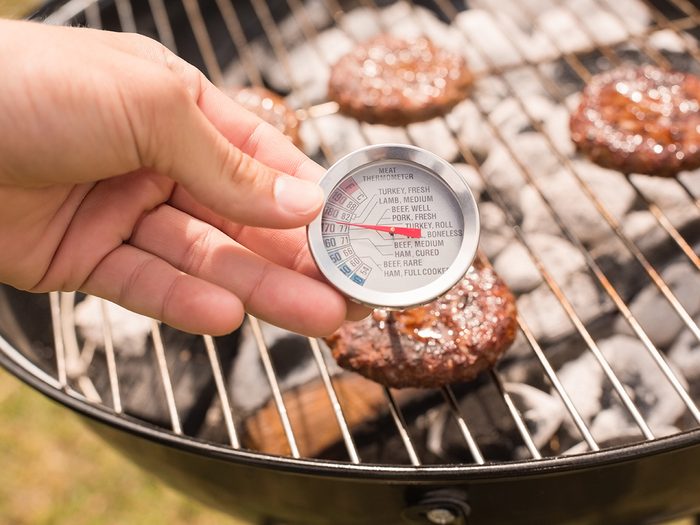
Always use a meat thermometer
“There’s a slogan at Health Canada,” says Jeffrey Farber, a food-science professor at the University of Guelph. “Your burger’s done at 71!” (That’s degrees Celsius, to be precise.) Home chefs should use a meat thermometer. If you like your meat medium rare, don’t fret—you can get away with cooking it to 63°C.
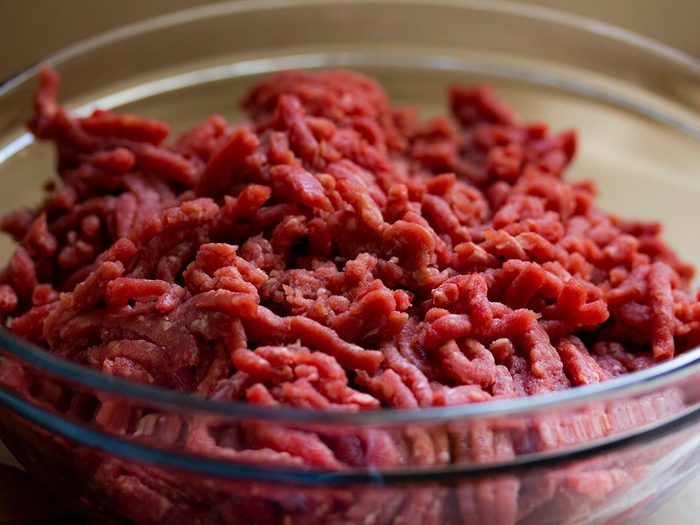
Be wary of bacteria in ground meat
“The process of grinding meat can introduce bacteria from the grinding surface,” says Farber, while more intact cuts only have bacteria on the surface.
Here’s how to keep your food safe during a power outage.
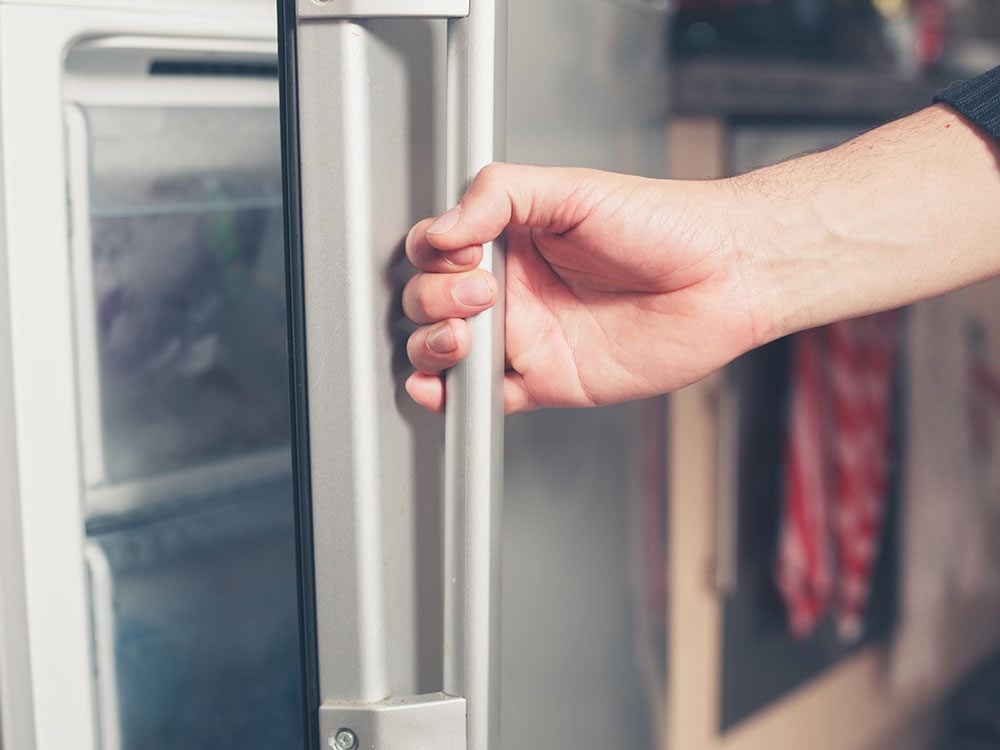
Refrigerate leftovers within two hours of cooking
That even goes for pizza, rice and vegetables. Be sure to reheat those meals to 74°C, too, says Goodridge. Bacteria can grow while food is in the fridge, so you should also avoid eating leftovers cold.
Find out which foods should never be microwaved.

Defrost meat slowly in the fridge
You can also thaw it in cold water, says Farber—it maintains a consistent temperature.
Here are the expiration dates you should never ignore.
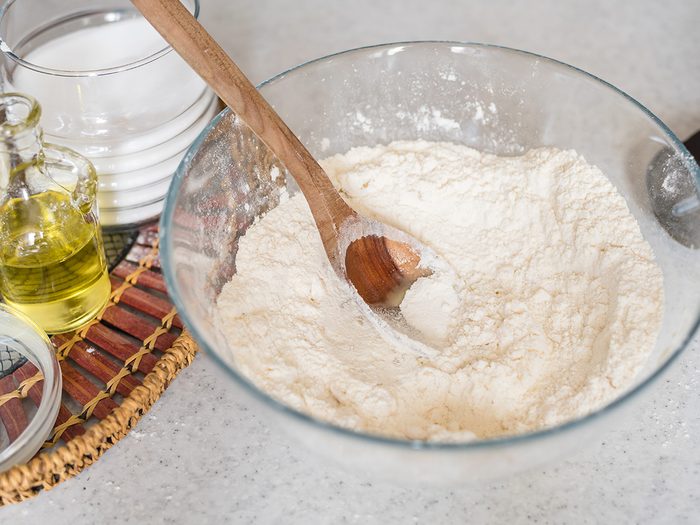
Handle non-food items carefully
Homemade playdough, for example, was linked to E. coli outbreaks in 2016 and 2017 that sickened at least 30 people in Canada. Wash your hands thoroughly after playtime to avoid falling ill.

Wash up after handling your scaly or feathered friends
April Hexemer, a manager of the outbreak management division at the Public Health Agency of Canada points out that birds, reptiles and amphibians can carry salmonella. Wash your hands carefully after feeding and touching these pets or being in their environments.
Find out why you should never let your cat sleep in your bed.

Know how long it can take for food poisoning symptoms to appear
Campylobacteriosis, the most frequently reported foodborne illness in Canada, produces symptoms anywhere from two to five days after exposure, says Hexemer. Salmonella shows up after one to three days and E. coli infection after one to 10.

Brush up on food safety guidelines
Best-before dates refer only to freshness and quality, says Goodridge. Instead, acquaint yourself with safety guidelines for specific foods. Deli meats, hot dogs and soft cheeses, for example, are associated with listeria, a type of bacteria that can grow in cold temperatures. Consume these foods within two to three days of opening them.
Can’t finish that deli meat in time? Find out how to freeze cold cuts.

Don’t rely on the smell test
“The bacteria that spoil food are not the same as those that make us sick,” says Goodridge. If the food smells, it’s not safe to eat, but a lack of odour doesn’t guarantee it’s edible. Aim to consume leftovers within two to three days to avoid food poisoning.
Here are nine leftovers that can make you sick.
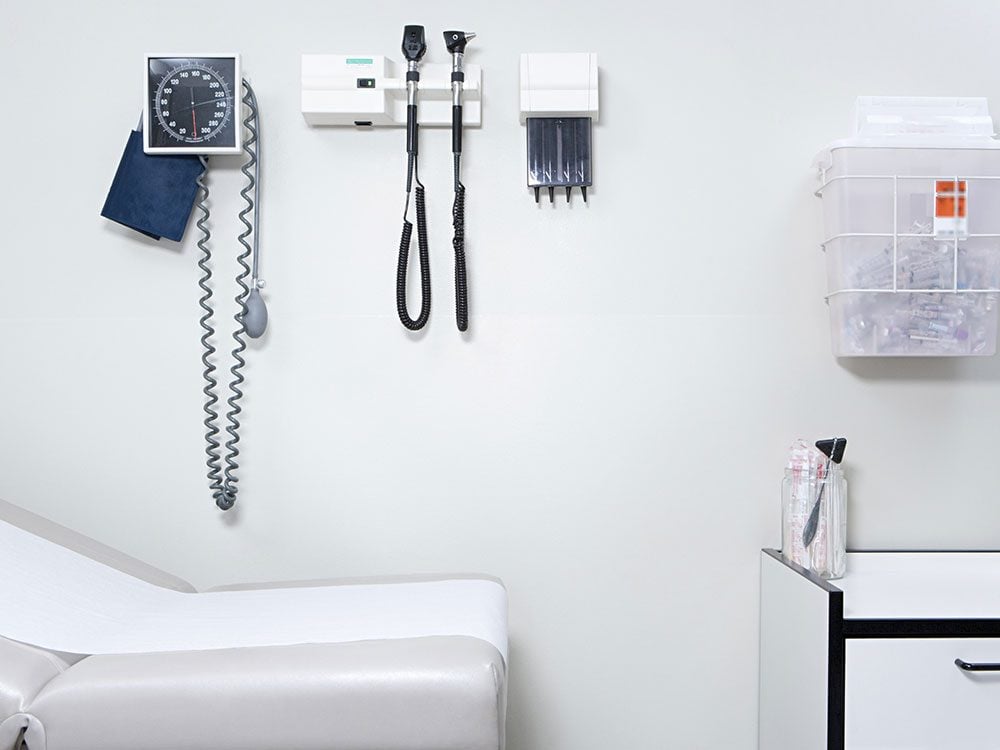
If you think you’ve contracted a foodborne illness, go to the doctor or the hospital
If you don’t, says Goodridge, public health professionals won’t know that you got sick. Reporting your illness helps alert the correct authorities and gets contaminated food recalled faster.
Check out 20 symptoms you shouldn’t ignore.

If you have a severe case of bacterial food poisoning, your doctor may prescribe antibiotics
Otherwise, focus on replacing lost fluids and electrolytes, getting lots of rest and reintroducing solid foods.
Now that you know how to avoid poisoning, consult our healthy home checklist to eliminate potential hazards in every room.